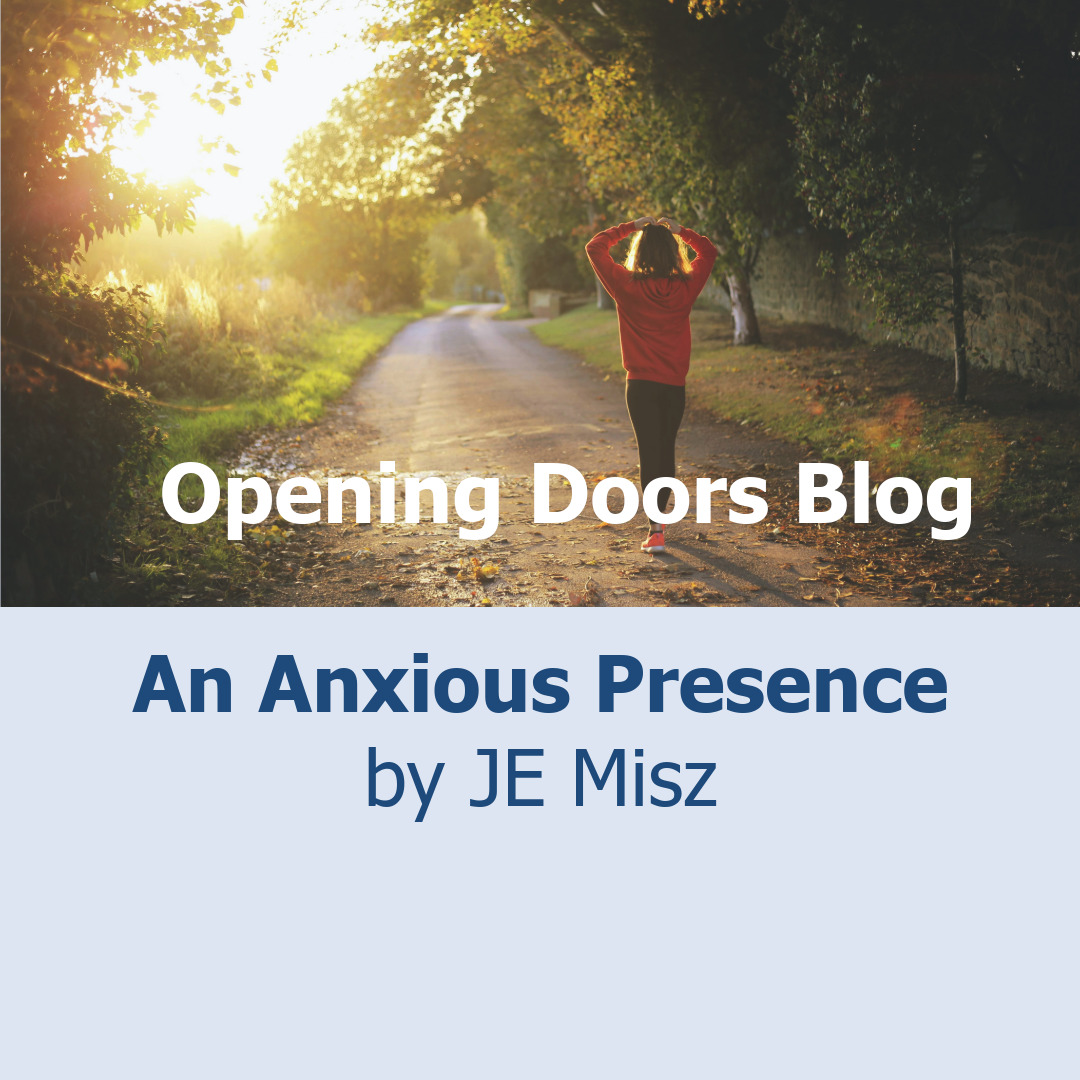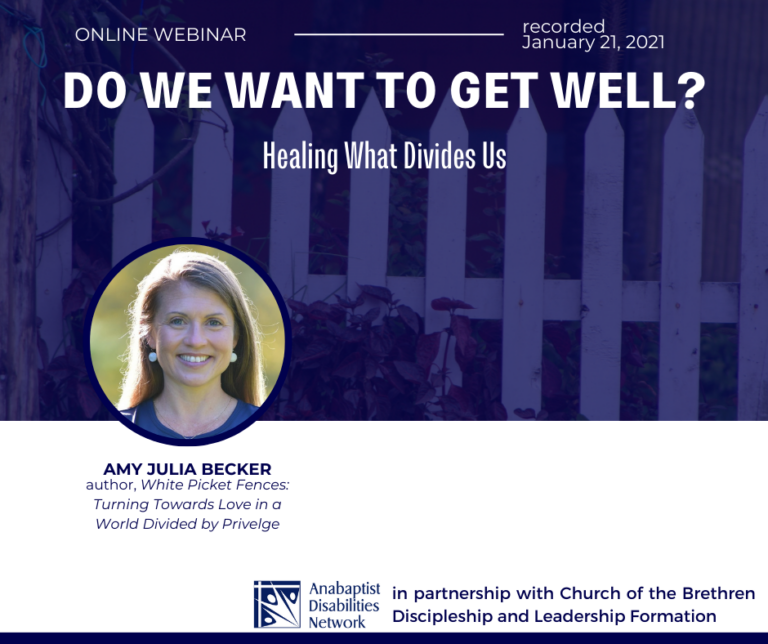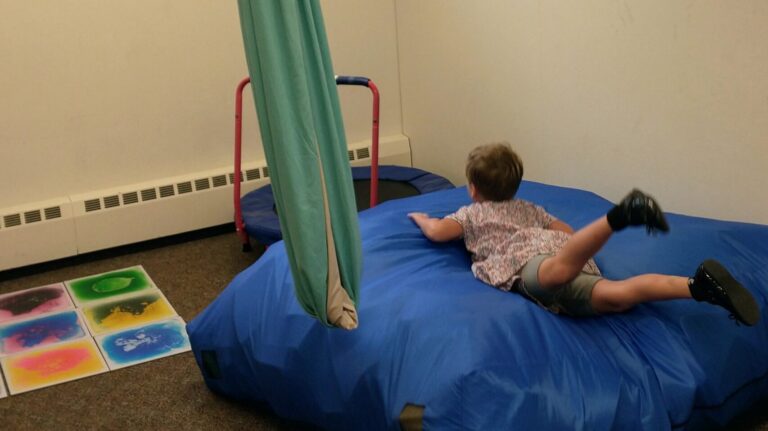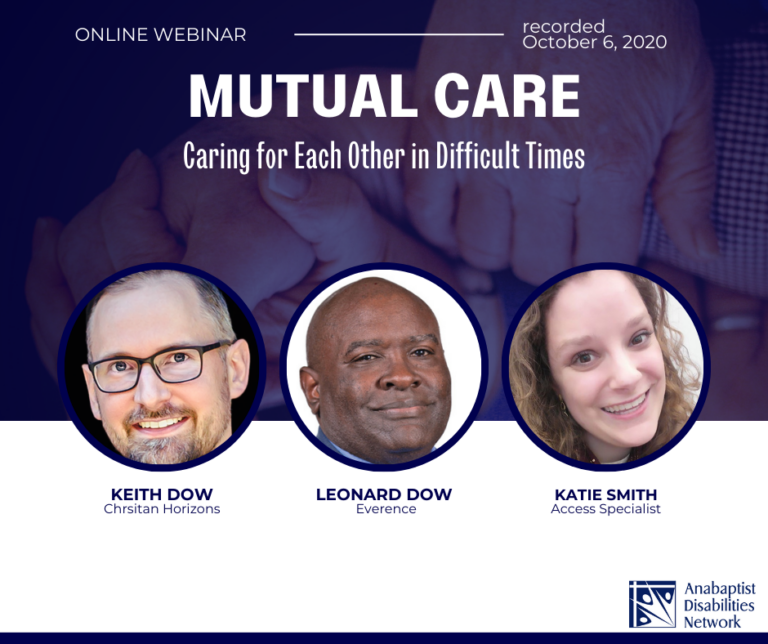An Anxious Presence
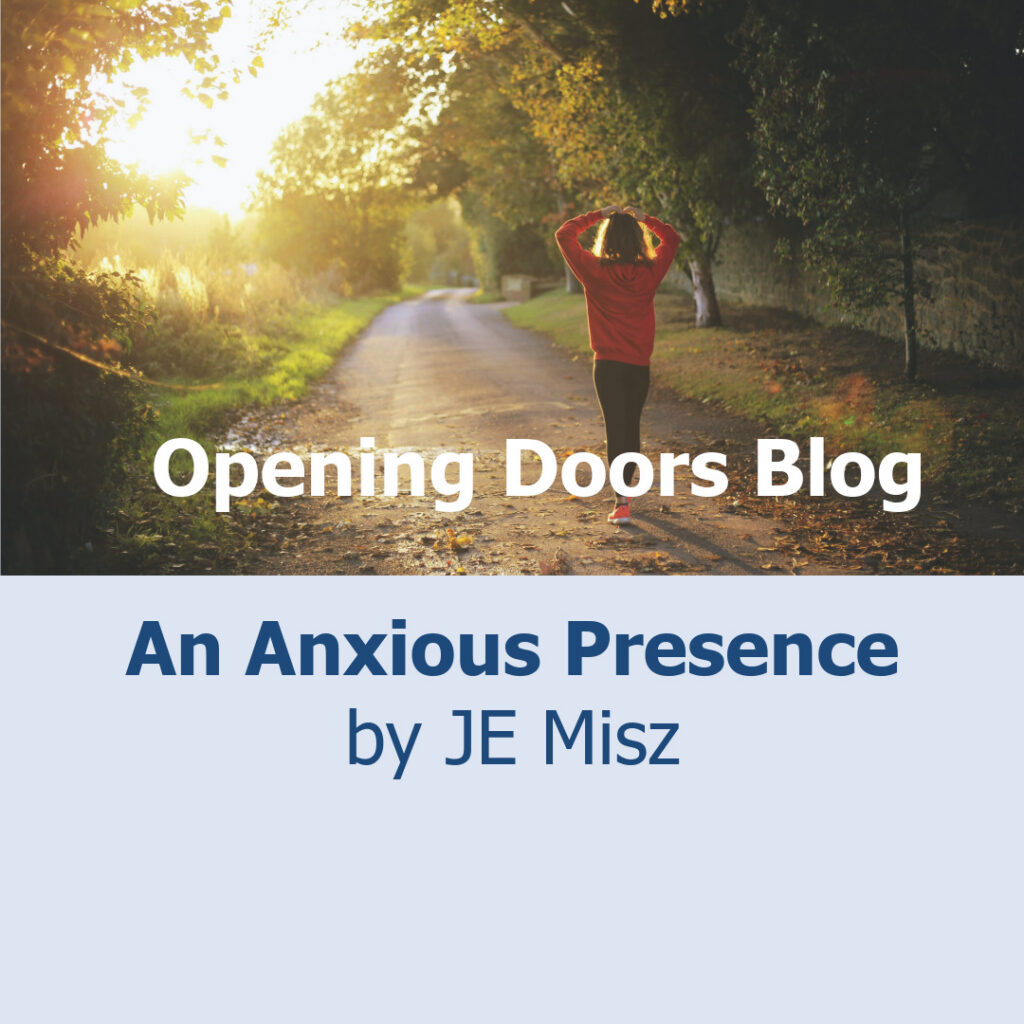
by JE Misz
For most churches, the life of the community revolves around the Sunday service. Regardless of the size of the congregation, those Sunday gatherings can be quite “people-y.” Small talk on the way in and out, being in a sometimes loud or crowded space, and managing the social pressures of engagement… it can be a bit overwhelming. This is particularly true for those in our communities who are experiencing anxiety. And, whether we are aware of it or not, our churches are likely filled with anxious folk who serve and bless their communities in varieties of ways.
According to the National Institute on Mental Health (NIMH), almost one-third of the US population experiences an anxiety disorder at some point in their lives, and almost one in five US adults experienced an anxiety disorder in the last year. This means that anxiety disorders are more common than mobility disorders, intellectual or developmental disorders, and diseases like diabetes. In all likelihood, anxiety disorders may be the most common disability experienced within our church communities.
Anxiety disorders, including social anxiety, generalized anxiety, obsessive-compulsive disorder, post-traumatic stress disorder, and various phobias can vary in intensity depending on the individual and their stage of recovery. For some, their anxiety disorder could be significantly debilitating. For others, an anxiety disorder can be distressing, yet manageable, most days. Because of the variance of experience, there is no clear guidance on how to best support, welcome, and involve those with anxiety disorders in our community. However, there may be some general considerations for how to support our anxious spiritual siblings within our church communities.
Here are a few ideas:
Offer diverse opportunities for engagement and connection. Church is more than what happens on Sunday mornings, and the Sunday worship setting might not be the best way for those with social anxiety to feel connected. Sunday schools, small groups, and one-on-one mentorships can be ways of fostering community and being involved that may not include larger gatherings. And just because someone may not be present on Sunday, it does not necessarily mean they are not connected to the community.
Find ways to serve. Those with anxiety disorders are often some of the most caring people you could ever meet. When you think about it, a person likely wouldn’t be anxious if they didn’t care about the safety and well-being of their loved ones or wish the world to be a better place. Being a person with a deep capacity to care is one of the greatest strengths of an individual with an anxiety disorder, and it may make them an ideal candidate for service opportunities within the church. Service can take many forms, from cleaning the building, quilting, putting together relief packages, being on a committee, to being involved in an ongoing ministry. Engaging in some form of service does more than help others; it can also offer some therapeutic benefit for those with anxiety. It is a healing that works for all involved.
Address and work to reduce stigma. Engagement in community can feel risky for those experiencing anxiety. Comments (even those that are well-intentioned) that point out or criticize one’s absence from larger social gatherings or critique one’s anxious attributes could work as deterrents for further engagement and increase one’s distress. Unfortunately, the Church has been a place where many have experienced stigmatization for their disability. Belief systems that oversimplify clinical anxiety as a sin also have been shown to increase self-stigma and shame and prevent people from seeking needed help.
Talk openly about anxiety and its impacts. Anxiety has an unfortunate habit of drawing people towards isolation. An added aspect of this is that anxiety is generally an “invisible disability.” It would be difficult to look around and tell which people are experiencing anxiety, so many people with anxiety tend to assume they are the only ones. When communities are able to have open dialogue about their experiences of anxiety, people start to realize they are not alone.
Have available resources for referrals for professional and ongoing mental health support. Treatment for anxiety can include the use of medication, therapeutic care, and other services to help those along their journey of recovery. Having a local list of therapists to make referrals can be a great way for churches to help people find support and to also normalize the need for seeking help.
While anxiety disorders can be greatly challenging to experience for the individual, the presence of those with anxiety in our churches is truly a gift. Those with anxiety teach all to care deeply, to pay attention to each other, and to move about the world thoughtfully. An anxious presence in our community can be a welcome presence if we all work to create space for each other.
JE Misz is a clinical social worker and poet who loves working with people with mental illness. He is on the board for ADN and also serves as a field associate. He lives in Goshen, Indiana with his spouse and backyard chickens.



